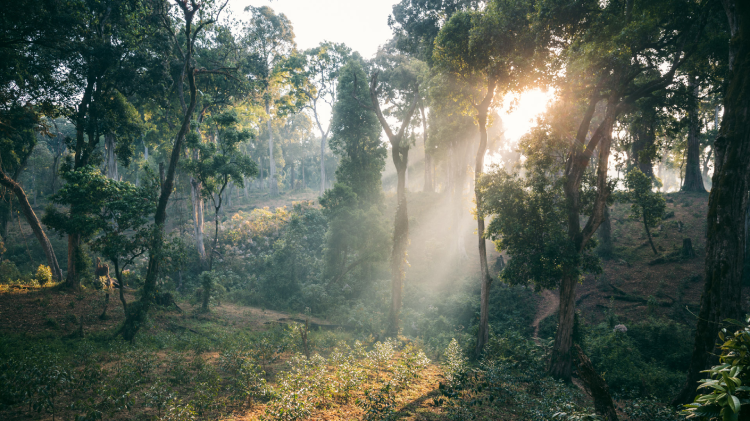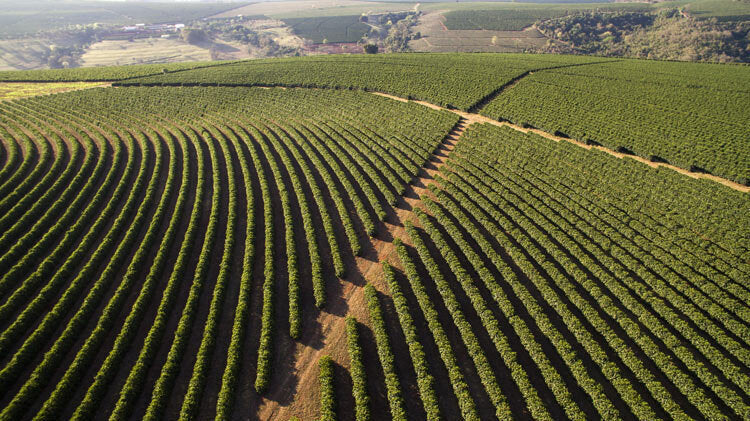
Chapter 1:
Bean Selection
Single-Origin Blue Mountain Typica
PNG Blue Mountain
For Imunika, we have meticulously selected premium Blue Mountain beans that are shade-grown under the natural canopies of the Papua New Guinean forests. Originally introduced from Jamaica, this prestigious sub-variety of Typica (one of the oldest and most genetically pure strains of Arabica) is well-known for its excellent cup quality and complex flavor profiles.
Marawaka, Eastern Highlands
Our single-origin beans are directly sourced from Marawaka, a small and remote village nestled on a plateau in the highly mountainous Eastern Highlands. Situated at an altitude of 1,800 to 2,200 meters, this elevation allows the coffee beans to mature slowly, absorbing the soil's distinctive characteristics and developing complex, irresistibly sweet flavor profiles highly prized by coffee connoisseurs.
Sustainable Farming Practices
Famous as a destination for conservationists and bird enthusiasts, Papua New Guinea boasts a startlingly large population of rare and exotic birds. The country is home to +700 bird species, including the captivating Bird of Paradise. These birds thrive in the dense forest and lands untouched by industry, pollution and human intervention. To us, thriving wildlife and the pristine, well-preserved habitats indicate that PNG farmers have developed a truly sustainable way of growing coffee.
Why Papua New Guinea?
Geography
Papua New Guinea, an exotic paradise in the southwestern Pacific, boasts diverse geography and climate. This lush island nation features tropical and mountainous regions, with highlands that enjoy perfect conditions for growing exceptional coffee. This region benefits from high altitude, unspoiled tropical forests, volcanic-rich soil, and a tradition of smallholder farming that prioritizes sustainability.
Terroir and Taste
Much like it does for fine wine, the unique combination of soil quality, topography, and climate - called terroir - plays a crucial role in producing specialty-grade coffee. Volcanic deposits in the soil of PNG’s coffee growing region create a rich, fertile foundation for the coffee plants. The light, loamy soil provides excellent drainage, while the nutrient-rich soil give the coffee a distinctive, smooth, buttery flavor packed with goodness.
Sustainable Farming Culture
Here, the coffee farms are not merely agricultural sites; they are extensions of the tropical forests themselves, working in perfect harmony with the existing environment. Modern farming techniques, including the use of pesticides and fertilizers, are largely unfeasible here. From a distance, these farms appear as unbroken stretches of forest, blending seamlessly with the natural landscape. It is only on closer inspection that coffee trees become visible, nestled in the shade of the larger, native trees which are left undisturbed.
Why Shade-Grown Coffee?
Sun-Grown vs Shade-Grown
Shade-grown farming integrates coffee trees into existing forests, a sustainable practice that benefits both the forest and the coffee, yet only done by 25% of the world’s coffee production. The overhead canopy of native trees shelters the burgeoning coffee beans from direct sunlight. In fact, coffee is a shade-loving plant that grows naturally under the canopy of larger trees. But, commercial 'sun-grown' cultivation often strips coffee plants of this protective ecosystem for larger production volumes.
Protecting Bio-diversity
Moreover, the overhead trees provide shade with their leaves and protection with their roots. The soil retains water more readily and is less prone to erosion, therefore growing the coffee uses less water and maintains soil-health, causing less damage to the environment. There is also evidence to suggest that, by working in harmony with the native fauna, coffee farmers can reduce their running costs, increasing the plants’ productive lifespan (compared with sun-grown coffee and with “lower labor and input costs for fertilization and pest control that can be more than $2,000 cheaper per hectare.”
Supporting Local Economy
Coffee grown naturally using traditional methods is more labor intensive, but the result is a much higher-quality coffee. Yields are likely to be smaller, though it is much more likely to achieve specialty grade which can be sold for a premium price: a price that we are very happy to pay.

Organic Shade-Grown Farming
Environment: Preserves biodiversity, reduces carbon emissions, protects water resources, and prevents soil erosion.
Flavor: Develops richer, more complex flavors with lower acidity and caffeine levels.
Economy: Commands premium prices, reduces costs due to less chemical use, and supports local communities.
Society: Empowers small-scale farmers and preserves traditional practices.
[Source: Shade Grown Coffee, 2020]

Commercial Sun-Grown Farming
Environment: Contributes to deforestation, soil erosion, and water waste.
Flavor: Develops flatter, more bitter flavors with higher acidity and caffeine levels.
Economy: Relies on chemical inputs, leading to higher costs and vulnerability to market fluctuations.
Society: Often involves large-scale monoculture, impacting local communities and livelihoods.
Direct-Sourcing Partnership
Traceability
Around 80% of Papua New Guinea’s population lives in rural areas with limited access to modern facilities, technology, or formal job opportunities. The result is a nation of smallholder farmers, relying on the land and their expertise to make a living. For the consumer, this means we can pinpoint, with spectacular accuracy and traceability, where our coffee is grown.
Direct-Sourcing
Since the coffee farms in Marawaka are also tiny, family-owned smallholdings, each harvest must go the nearest cooperative for processing. This is a shared facility where coffee is prepared for sale. The process may involve sorting, pulping, washing, and drying as well as several quality control checks along the way.
Long-term Partnership
We have built a direct relationship with the local mill/processing facility which is co-invested by a Korean entrepreneur, who is our long-time family friend. We work closely with them to ensure that the farmers in Marawaka will receive a fair price for the love and care they have shown our coffee beans. In return, they provide us with truly exceptional coffee.










